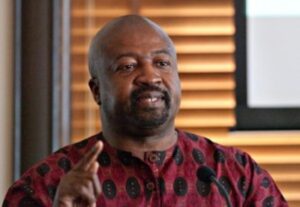
NOW that the date is set for Local Government Elections (LGE), Guyana is again placed in elections mode. Coming less than a year after the historic May 11 elections which saw the first change of government in more than two decades, these Local Government Elections are expected to generate a fair bit of political interest. It is the first time the country would vote in such elections since 1994, which is quite a statement on the quality of our democracy. But it’s better late than never. Generally Local Government Elections tend to generate less interest and participation than General Elections; there is the perception and perhaps reality that not much is at stake. Given our infrequent LGEs–just two of them in 45 years—it is not clear whether the coming election would fit that trend. However, what is clear, to my mind, is that it would be an important election for the governing coalition and the opposition PPP. In effect, both entities would be on trial.
The first big hurdle would be whether the governing coalition would contest the election together or separately. Many may think this is a foregone conclusion; that they would contest as a coalition. But the AFC, which prior to the formation of the coalition, had been very jealous of its singular identity may be tempted to go it alone. As part of the governing coalition, the AFC’s individuality has invariably been subdued. That is the nature of partnership politics. As Sherwood Lowe, in a recent letter to the press, argued, the parties in the coalition seem to be fusing into a single entity. While Lowe’s conclusion may be somewhat premature, his argument should not be overlooked.
Clearly, the AFC has not been able to maintain the same vibrancy that characterised its politics and made it attractive to that constituency which is wary of the hegemonic politics of the PNC and the PPP. Gone are its weekly press conferences and frequent commentary on the issues of the day. One never knows where the party stands on the major issues such as the salary hike, power sharing with the PPP and the debate on the sugar industry. When its members speak they do so as government functionaries. Unlike the WPA whose non-Cabinet members views on these issues offer the public a sense of where that party stands, no major AFC leader has spoken up. One expected leaders such as Nigel Hughes, Lennox Craig and others not involved in the inner workings of the government to play such a role.
This leads one to wonder whether the AFC’s independence has been compromised by its presence in the government. The PPP had predicted this outcome and has been making that observation both publicly and quietly among the Indian Guyanese constituency, where the AFC got the bulk of its support. The AFC is in a difficult position. More than any of the partners, it has to make the coalition work; given the major ministries it controls, it represents almost half of the government. Ever so often the party has to publicly say that the Cummingsburg Accord is working and not in danger. Neither the PNC nor the WPA has had that burden. Hence, the AFC cannot be seen to be critical.
Second, because of the PPP’s hostile attitude to the government, Indian- Guyanese would find it difficult to embrace aspects of the government’s mission. In that regard, the perception that the AFC is part of the enemy camp is a clear and present problem for the party. Third, one suspects that many AFC rank-and-file members may be unhappy about the party’s muted or disappearing independence; this is what drew them to the party in the first place. This disconnect between the first and second-tier membership could become problematic. The very fact that the party seems immobilised is testimony to this apparent apathy among the second-level members who would be expected to keep the party’s machinery going in the absence of the top leadership who are busy on government duty.
It is for all of the above that the AFC may be tempted to go to the LGE separately. It may reason that the election offers an opportunity to rekindle the party’s independence and reconnect it with its Indian- Guyanese constituency. But attractive as that option seems, it would be politically unwise to go there. It would undermine the integrity of the central government and invariably weaken it. It would signal that despite pleadings to the contrary, the Cummingsburg Accord is in trouble. And worst of all, the AFC faces the real possibility of being totally rejected by the Indian-Guyanese electorate. While the AFC has been busy governing, the PPP has been intensely working that community with a vicious anti-AFC poison that should not be underestimated. For, now the AFC needs the cover of the coalition and the message of its success. Going alone is not an option.
The PNC also may be tempted to go it alone at the LGE. There has always been a strong anti-coalition tendency in that party that may have been weakened with the coming to power of the coalition. But, despite the perception that the PNC controls the coalition, the reality is somewhat different. There is no doubt that the party wields the most influence largely on account of its age and its influence in the major constituency of the coalition. Because it has a majority of the ministers and the powerful presidency, it is the only party in the coalition that has an informal veto. But in the overall working of the government as an integrated entity, that influence is invariably diluted. So long as you create an APNU or an APNU+AFC Coalition, you are birthing something new that would develop its own dynamics.
I say the above to make the point that the PNC may still think going it alone may be good for the party’s affirmation of its strength. One may remember that before the formation of the coalition, the party was ambivalent over contesting the local elections as the APNU. Big parties have a hard time sharing power. But the choice has to be made between party hegemony and partnership politics in the interest of the collective.
The LGE is going to be a referendum on the government’s tenure since May 11. Ironically, it would be a referendum among its own supporters. There is no secret that after the initial lovefest, the government has drifted away from the pulse of its supporters. The big challenge for the coalition, whether they run as one entity or separately, is the extent to which they can mobilise their supporters to go to the polls. My sense is that it would take some serious work that would be better done if they contest as a united coalition.






